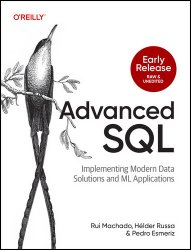 Название
Название: Community Structure Analysis from Social Networks
Автор: Sajid Yousuf Bhat, Fouzia Jan, Muhammad Abulaish
Издательство: CRC Press
Год: 2026
Страниц: 256
Язык: английский
Формат: epub (true)
Размер: 10.1 MB
This book addresses social and complex network analysis challenges, exploring social network structures, dynamic networks, and hierarchical communities. Emphasizing network structure heterogeneity, including directionality and dynamics, it covers community structure concepts like distinctness, overlap, and hierarchy. The book aims to present challenges and innovative solutions in community structure detection, incorporating diversity into problem-solving. Furthermore, it explores the applications of identified community structures within network analysis, offering insights into social network dynamics. The book is organized into three sections. The first section focuses on the foundational elements of social network analysis, exploring dataset characteristics, challenges in data representation, and comparisons of open dataset repositories. The second section focuses on methodologies and techniques for community detection. It delves into graph clustering, semi-supervised learning, and Deep Learning approaches, providing readers with an in-depth understanding of structure and dynamics. Python is a popular programming language for community detection because of its wide variety of libraries, simple syntax, and ease of integration with other computer languages.
 Название: Больной вопрос
Название: Больной вопрос
 Название: Больной вопрос
Название: Больной вопрос Название: Больной вопрос
Название: Больной вопрос Название: Больной вопрос
Название: Больной вопрос Название: Больной вопрос
Название: Больной вопрос


 Название: DWJ - Magazin fur Waffenbesitzer
Название: DWJ - Magazin fur Waffenbesitzer Название: Biba
Название: Biba